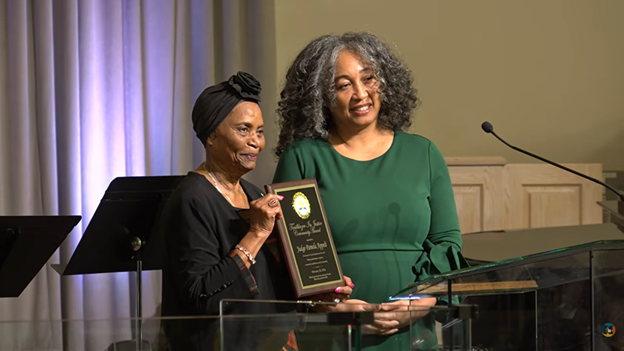Creating a Safe Space for Youth
Tips on Connecting Like Jesus from Calibrate Youth Ministries Convention
Posted: February 10th, 2022
cagboka@adventistontario.org

Last April, New York Times writer Adam Grant suggested that the dominant emotion of 2021 was languishing. Languishing isn’t depression or burnout; instead, it’s “feel[ing] somewhat joyless and aimless.” It’s having a sense of “stagnation and emptiness.” Whether languishing or sliding down the slippery slope to depression, youth appear to be most at risk for emotional disorders. And in these uncertain times, our youth need more support than ever .
During the Youth department’s Calibrate Youth Ministries Convention (Feb. 5-6), main speaker Ranela Kaligithi suggested that our job as leaders is to facilitate healing in a world that so desperately needs it. Her experience as a young Adventist, knowledge as a mental health coach and therapist-in-training and youth leader informed the following well-received tips on how to impact the youth around us positively:
Don’t assume you have all the answers.
We often think we need to teach young people what we’ve always believed and done as Adventists so they can uphold long-held traditions. But, Ranela argued, “We need to give more room to being taught by young people. The truth is, they’re not just the future of the church; they are the present. And they’re experiencing things we will never experience. These young people have something deep that we don’t have. Being able to take that posture changes everything.”
Operate from a place of trust.
“Guiding young people takes a deep level of trust. Trust in them. [Also] trust in God and the process of life,” Ranela said. “Let’s facilitate safe, inclusive discussion around the major life issues without an agenda and trust God to guide them to their own conclusions.” If we instil a fear- or shame-based religion in them, they’ll seek a more affirming path when it’s time for them to choose which way to go. “What we need to provide is a therapeutic place for them to be able to shift and learn and grow.” And from this place, they’ll want to adopt a lifestyle and a faith that leads to health, happiness and safety.
Listen to their stories without judgment.
Take time to listen to their stories, individually and collectively. Be sensitive to the “language of pain” youth and young adults speak. Approach them with the view that they have a lot of good inside them, but they’re just navigating a challenging time. Realize people often engage in addiction or unhealthy coping mechanisms because they have unresolved trauma or are going through a tough transition. Offer them unconditional positive regard.
“We want to be a community of leaders that provides the safest, most accepting, loving place for young people because they’re already fighting judgment, comparison and deep feelings of confusion and unworthiness in the world. Church shouldn’t be another place that affirms the narrative that they’re not enough. We should be the complete opposite,” said Ranela with emotion.
Advocate for what they advocate for.
Young people believe in “confronting cultural and societal norms,” much like Jesus did on earth. He sought out and fought for the outcasts and people who didn’t fit in. Whether the issue is social justice, equal rights or inclusion, come alongside them and care about the same issues they do. Remember that you don’t have to believe the same on every issue to offer them your genuine support.
Don’t underestimate young people.
Study our history, and you’ll find that God used deeply spiritual young people like Ellen White, James Nevins Andrews and Uriah Smith to found the Adventist Church. Consider, for example, that Ellen White was 17 when she had her first vision. “Young people have such a deep desire for spiritual things. They have so much to teach us. They are guided by God,” Ranela stated.
So let’s allow young people the freedom to explore possibilities and bring about positive change in our church. “We don’t want to create a generation of young people who are mere reflectors of another man’s thoughts,” she noted.
Ranela concluded, “Faith has the potential to be incredibly potent, therapeutic, bolstering in times of deep distress. My deep desire is that we would create spaces of unconditional belonging. We can know we’ve been successful [as leaders] if, no matter where life has taken them, they have always known and felt that they belonged to the heart of God.”







